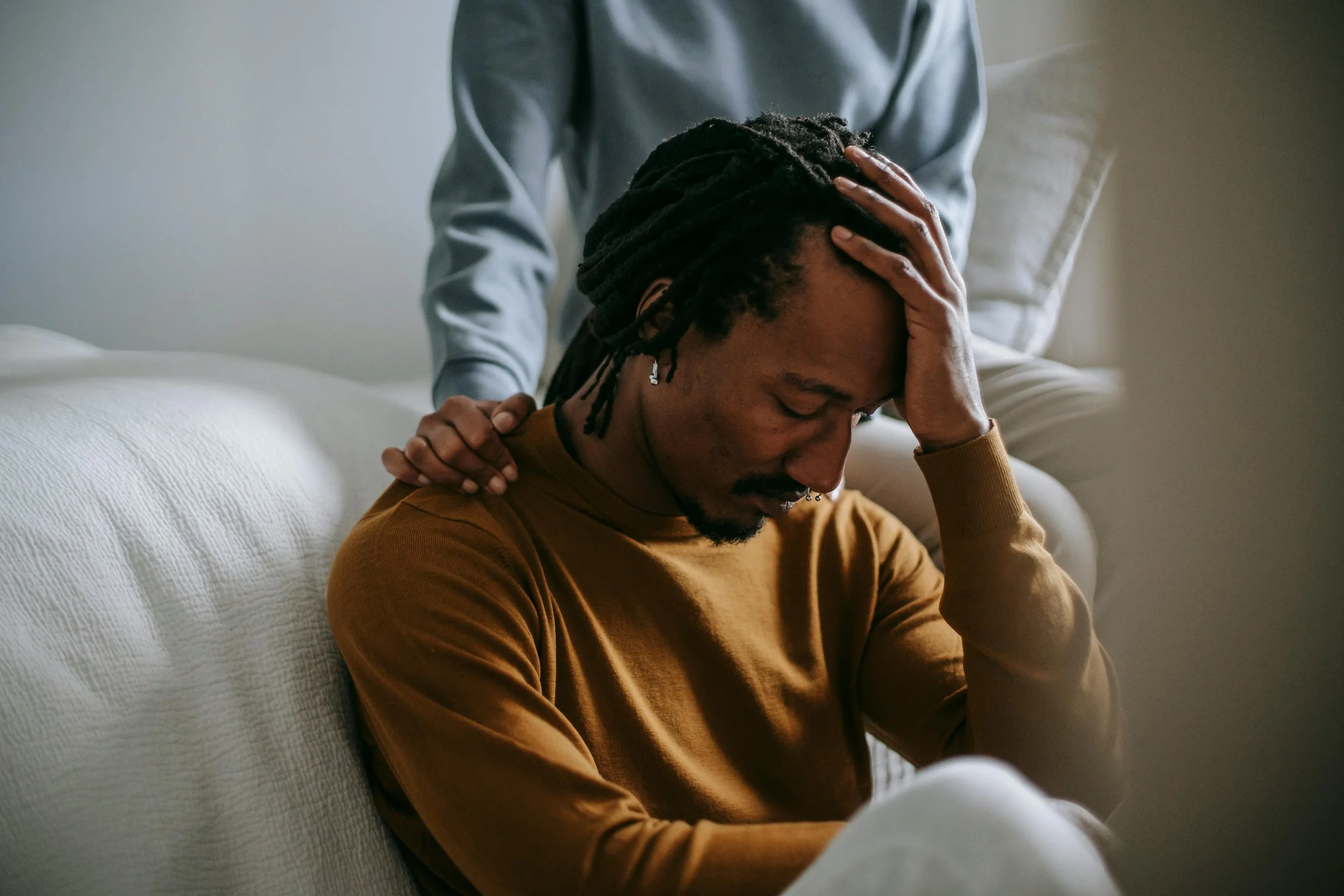National Grief Awareness Day: How to Cope, Heal, and Support
When many people think of grief, they imagine the pain of losing a loved one. While that’s one of the more common causes of grief, it can also arise from life changes, the end of a relationship, a decline in health, career transitions, or other significant losses. No matter the source, grief is a deeply personal and often misunderstood experience.
National Grief Awareness Day, observed each year on August 30, was founded in 2014 by Angie Cartwright to encourage open and honest conversations about grief. This day serves as a reminder that healing begins when we acknowledge our pain and reach for connection.
Understanding Grief
According to Miriam-Webster, grief is defined as, “deep and poignant distress caused by or as if by bereavement,” or “hardship, distress, hurt, anger, sorrow.” Grief, even if not related to death, can make you feel like you’re mourning the loss of something. It can manifest emotionally, physically, cognitively, or even spiritually.
Everyone’s grief journey is unique: there is no timeline for dealing with it. Grief is a natural and personal response to loss or change that is not linear. Some days you may feel sad and depressed, and then randomly you may feel happy or find joy in something. These are all valid parts of healing.
The Stages of Grief
The five stages of grief is a framework created by Elisabeth Kübler-Ross for understanding the emotional reactions to loss. It’s imperative to note these stages are not linear and some people may not even experience all 5 stages.
Denial
The first stage is denial, which helps us “survive the loss.” Nothing in the world makes sense, and things may not even feel real. We wonder how we’re supposed to go on, if we even can go on. We feel overwhelmed, frozen, and stuck. Grief.com says denial is how we “pace our feelings of grief.” Unknowingly, denial helps us begin the healing process.
Anger
Anger is a singular emotion, often acting as a mask over the many other emotions you may be feeling after a loss. Letting yourself feel the anger is important, because the more you let yourself feel it, the quicker it will dissipate. We’re most familiar with suppressing our anger rather than feeling it. As you begin to experience your anger, you’ll begin to understand why you’re upset and feel the other emotions hidden by the anger itself. Grief.com states that anger “is just another indication of the intensity of your love.”
Bargaining
Bargaining is the stage where we bargain with the pain in an attempt to not feel the loss. It is filled with “if only” or “what if” statements that unfortunately aren’t realistic. We can’t go back in time or change the things that have happened leading up to this unimaginable loss. We can’t negotiate our way out of loss, but we can continue to feel our pain, understand our emotions, and heal.
Depression
Depression is the emptiness of the present, and is a very normal part of grief and navigating loss. Although depression is often seen as something that is unnatural and needs to be fixed, to not experience depression after loss would be far more unnatural. It is an appropriate response to a loss and can consist of behaviors such as withdrawing from social obligations, having trouble getting out of bed, and struggling to do everyday things like cooking, bathing, and caring for your family. Depression is one of the many steps along the way to overcome grief.
Acceptance
Acceptance is not being fine with loss, rather it’s recognizing that the reality we’re in now is our new reality. We may not like this reality, but eventually we learn to accept it and to persevere. Acceptance means something different for everyone, but it’s a stage where we learn to accept our feelings and where we invest in ourselves and our happiness.
Healthy Ways to Cope with Grief
Coping with grief looks different for everyone. Doing mindful activities such as journaling, meditation, and simple breathing exercises can offer moments of peace, helping process feelings without judgment. Creative outlets like painting, music, or movement can provide a nonverbal way to express emotions.
It’s also important to lean on support systems - whether that’s working with a therapist, joining a support group, or confiding in friends and family. Above all, be patient and kind with yourself. Feel what you feel without rushing the process or feeling like you’re on a timeline.
How to Support Someone Who Is Grieving
Supporting someone through grief starts with simply being present. Listen without trying to “fix” them, and refrain from offering clichés like “Everything happens for a reason.”
Be specific when offering help. Instead of saying, “Let me know if you need anything,” try, “I can bring you dinner on Wednesday” or “I’ll watch the kids for a few hours this weekend.” Respect their pace and boundaries. Some days they may want to talk, and other days they may need space.
If you’re concerned your friend or family member may need professional help, gently express your concern with compassion. Suggest that professional grief counseling could offer additional support, and offer to help them find resources when they’re ready.
How Mae Mental Wellness Can Help You in Your Grief Journey
If you’re feeling overwhelmed in your own grieving journey, Mae Mental Wellness is here to help. We offer psychotherapy, personalized treatment plans, and medication management. Grief is an ongoing process, and there’s no right or wrong way to move forward.
To book an appointment at Mae Mental Wellness, you can fill out this form or call (561) 231-0233. Learn more about services we offer and which insurance we accept.


